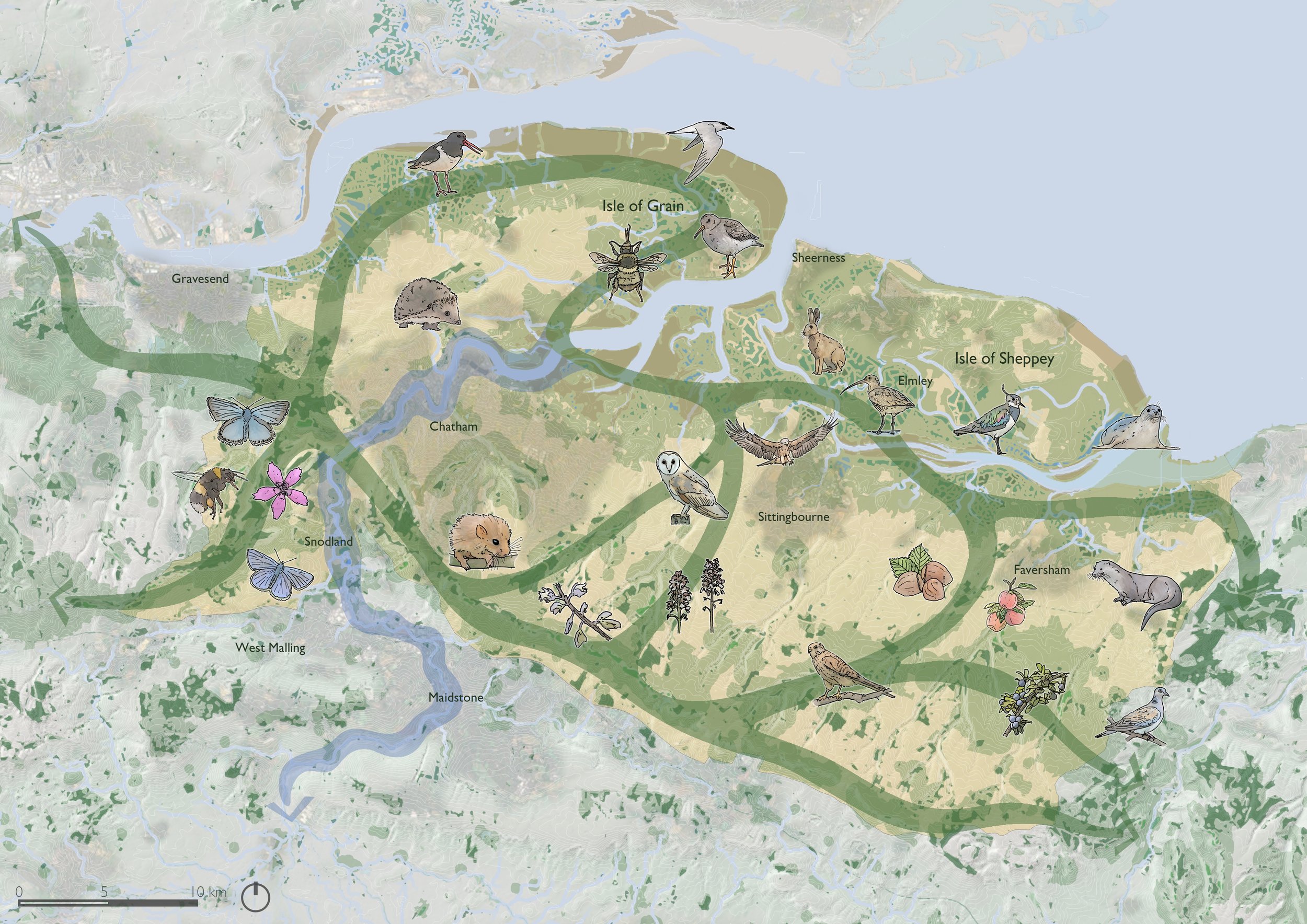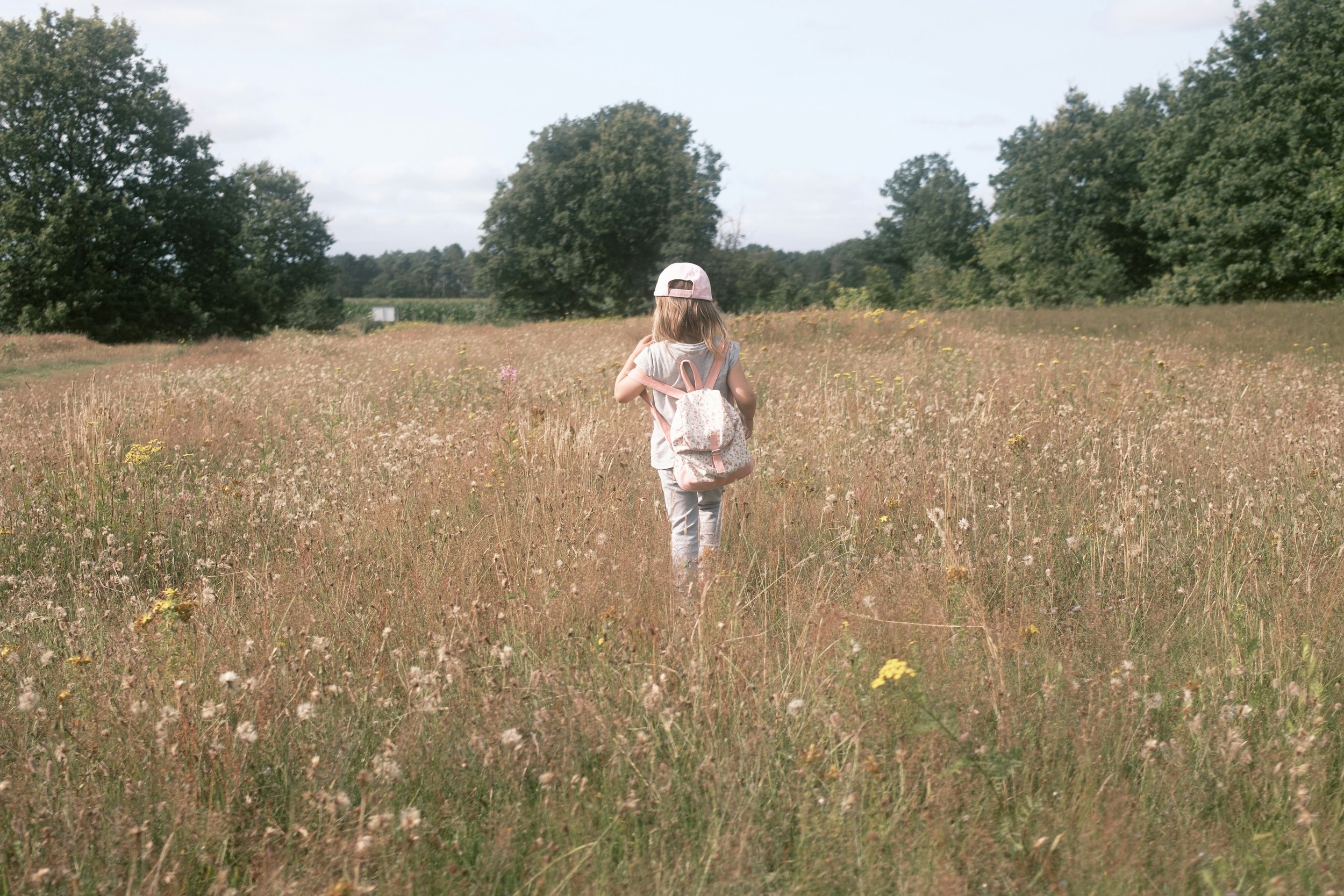
restoring and
connecting nature
across Kent
Chalk to Coast is a visionary landscape scale project working to create a nature recovery corridor across Kent.
Our mission is to reverse biodiversity loss, improve climate resilience and support nature-friendly farming. Supporting farmers, communities and businesses to create a greener, more sustainable future – one which benefits both nature and people

Climate change, fragmentation and habitat loss means the wildlife we depend upon is in decline
The UK as a whole has some of the highest rates of biodiversity loss in the world. Whilst Kent is blessed with one of the highest levels of biodiversity in the country, due to the variety of habitats found here, these habitats are under threat. Vulnerable to the worst effects of climate change, fragmented by development and carved up by the M20 and M2, the wildlife which we depend upon is in decline.
By connecting habitats through a county-wide nature corridor, we can reverse this loss
Taking good care of nature has wider resonance than we may first think. We rely upon nature to produce the food which nourishes us, and for our mental and physical wellbeing. Even the economy depends upon the natural world, with The World Economic Forum Global Risk Report demonstrating that five out of ten top risks to our economies in the next ten years are associated with nature. Quite simply: we depend upon nature, and nature needs our help.
Chalk to Coast is creating a county-wide nature recovery corridor for wildlife to travel between, with the aim to restore wildlife while improving climate resilience.
Our approach brings together farmers, conservationists, and investors, working together to deliver nature restoration projects which support economic growth, sustainable food production, and climate action.
This is an opportunity to shape a better future—where nature, people, and enterprise thrive together.
2030 Targets
1 million people connected to nature through access to green spaces, community engagement and education.
20% of land for nature, enhancing habitats and supporting survival of rare and endangered species.
£200m invested in nature recovery and climate resilience.

Be part of the future
Chalk to Coast is at an exciting development stage, offering corporate partners and investors the opportunity to co-design and shape early-stage nature projects
We invite businesses to collaborate with us in creating tailored solutions that align with their sustainability goals and corporate values. Below you can learn more about our projects, and the impact they’ll have in service of creating a greener future for us all.
2024 - initial concept & partners
2025 - launch, building network & governance
2026 - community engagement & investable projects
how we create impact
Our projects are designed to deliver impact where it’s needed the most. But we can’t deliver impact without your support! Please get in touch to partner with us.

the Chalk to coast nature corridor
Farmers & land managers
Benefit from access to green finance and become part of a movement of land managers devoted to sustainable land use.
Businesses & investors
Become recognised as an environmental leader while supporting ESG and biodiversity net gain commitments
In the community & at home
Show your support by taking action and getting involved in our vital work

Help us to restore and protect Kent’s wildlife for future generations
Are you a farmer, landowner or steward of land? Let’s start a conversation.
Our strength is in the power of like minded people working together to create a bigger, better, more joined up solution to nature regeneration than any of us could manage alone. By supporting one another, much like a farming super-cluster, we can increase our understanding of biodiversity, natural capital and green finance and make better decisions together.
Founding Partners
Chalk to Coast is farmer and land-manager led, ensuring that long-term stewards of the land drive the vision forward. Our founding partners represent expertise in conservation, sustainable land use, regenerative farming, and environmental design.
Guy Nevill
Marian Boswall
Tom Gore
Gareth Fulton




















